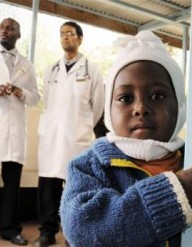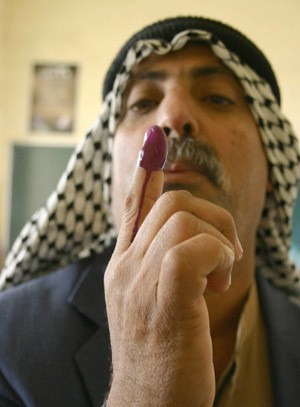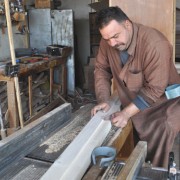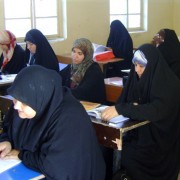2010
March
With assistance from USAID’s Election Support Program, parliamentary elections are held. No coalition wins an absolute majority. The election results are challenged and the Iraqi Supreme Court orders a recount of all votes cast in Baghdad.
April
The Council of Ministers approves Iraq’s five-year National Development Plan (NDP). Developed with USAID assistance, the NDP outlines a $187 billion capital investment strategy to improve social services and economic development.
May
USAID assists Iraq’s election commission conduct a recount with no changes in results.
USAID’s Youth Initiative Program is inaugurated in Najaf. The program focuses on creating economic opportunities for Iraqi youth nationwide.
June
The Supreme Court certifies results from the March election. Members of Parliament convene, take an oath of office, elect an interim speaker, and keep the session indefinitely open pending negotiations over government formation.
FACT BOX
- Population: 30,399,572 (2011 est.)
- Percentage of people living below poverty line: 25% (2008 est.)
Main development challenges:
- Inadequate infrastructure, insufficient essential services, and antiquated commercial laws and regulations that stifle investment
- High unemployment, with varying estimates from 15-38%.
- Widespread corruption and need for reforms such as bank restructuring and developing the private sector
(Source: CIA World Factbook)
- Approximately 2.8 million internally displaced persons result from the ongoing U.S.-led war and ethno-sectarian violence
(Source: USAID)
Main assistance sectors:
- democracy and governance, agricultural and economic growth, stabilization, humanitarian assistance
- Year USAID began its current program: 2003
(Source: USAID)
July
A memorandum of understanding is signed between USAID and the Central Bank of Iraq to strengthen the private financial sector and create a $50 million, five-year assistance program aimed at increasing transparency, encouraging banking “best practices,” and boosting private-sector lending. With USAID assistance, Iraq’s provincial councils roll out updated provincial development strategies aligned with their capital budget requests.
August
Seven years after the U.S.-led invasion, the last U.S. combat brigade leaves Iraq.
Civil society organizations sue the interim speaker, challenging the constitutionality of Parliament’s “open session.”
Participants in the USAID/Tatweer program, which offers training support to the Iraqi civil service, surpass 100,000, nearly doubling the program’s projected four-year target.
September
The U.S. military hands over authority to the U.S. Embassy to lead operations in Iraq.
Iraq’s Micro-Finance Institution Network is established as a $100 million loan portfolio with input from USAID experts. The goal of the network is to provide a sustainable stream of loan revenue to Iraqis.
October
Ongoing political negotiations continue to stall the formation of the Iraq Government. The Supreme Court finds Parliament’s “open session” unconstitutional and orders the interim speaker to reconvene members.
Iraqi security forces storm a Catholic church that had been seized by militants during Sunday Mass. Fifty-two people die and more than a dozen are injured in the worst attack on Iraq’s Christians in recent years.
USAID launches its Access to Justice Program, a three-year effort to provide community-based legal assistance to vulnerable populations.
November
Parliament reconvenes after a long delay, elects a speaker, re-appoints the president, and approves Nouri al-Maliki as “prime minister designate,” allowing him to form a cabinet pending Parliament’s approval.
The Agency’s Legislative Strengthening Program moves forward with new member orientation, launching a membership development effort.
December
Iraq’s Parliament approves a new government with Shiite, Sunni, and Kurd representation, ending a nine-month impasse. The Iraqi Parliament’s speaker requests USAID’s assistance to build the capacity of his office through the Legislative Strengthening Program.
2011
January
Seventy-three public administration and public policy graduates return to Iraq to develop the public sector. All received master’s degrees at Middle Eastern universities through USAID’s National Capacity Development Program, Tatweer.
February
Some 207 parliamentarians partake in a three-day USAID workshop as part of the Legislative Strengthening Program to increase the capacity of Iraq’s Council of Representatives and improve institutional oversight of government operations, legislative development, and constituency representation.
Following on protests seen elsewhere in the region, Iraqi protesters, demanding governmental reform and improved service delivery, begin to take to the streets in Iraq. Though protests are mostly peaceful, reports indicate more events are planned, underscoring the challenge the Government of Iraq faces in meeting the demands of its people.













Comment
Make a general inquiry or suggest an improvement.